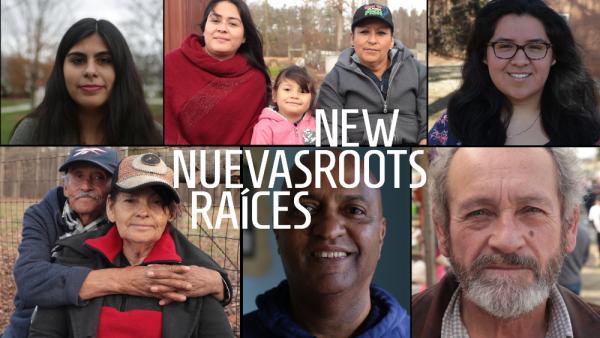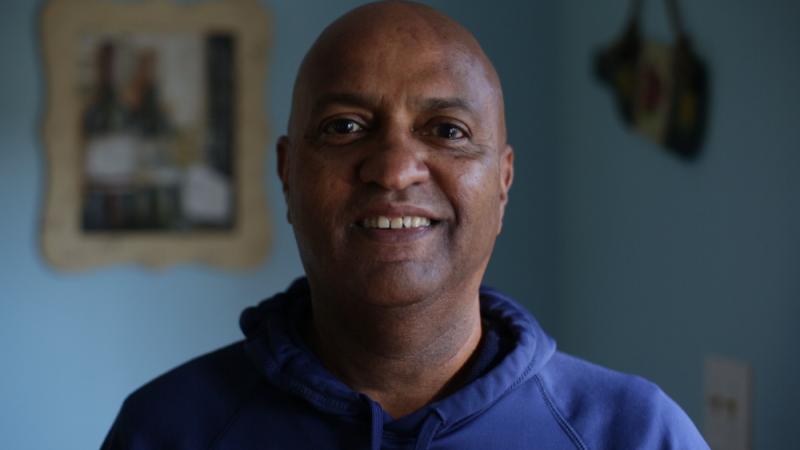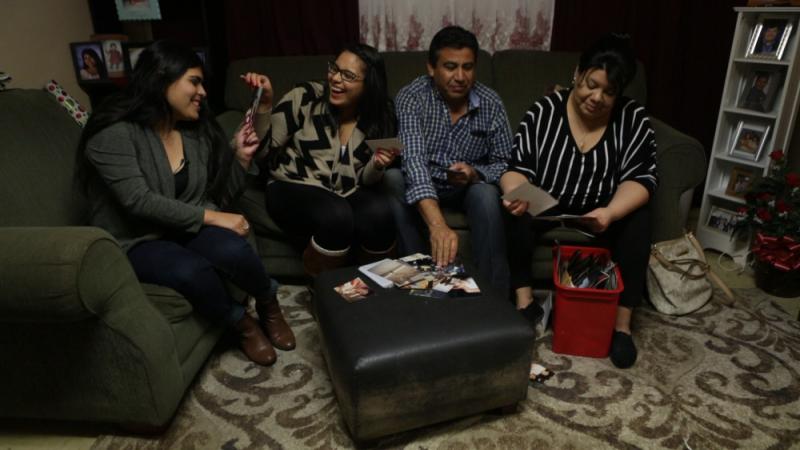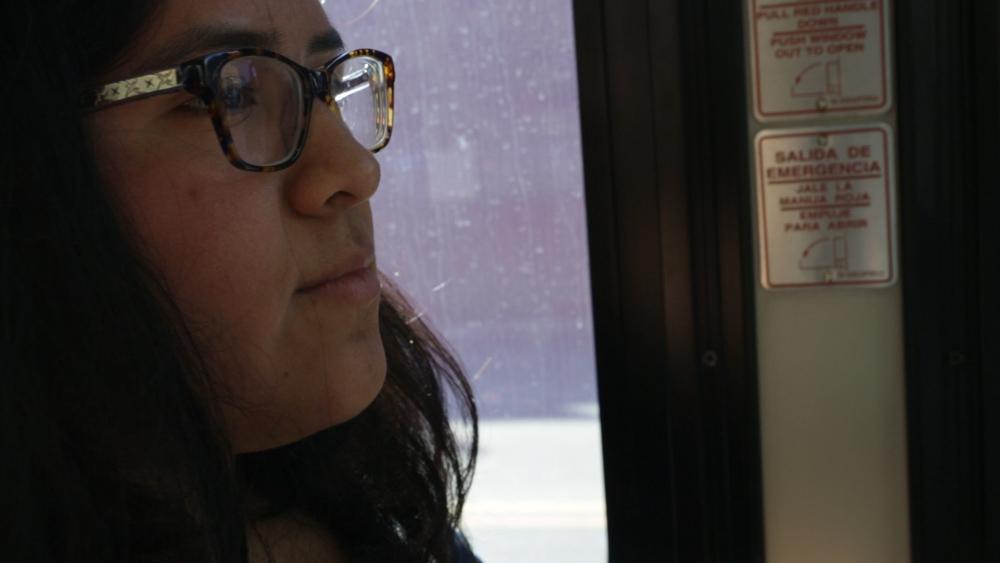Tune In Tuesdays: New Roots: Latino Oral Histories

New Roots/Nuevas Raíces is an ongoing oral history research initiative and digital archive of Latinos in North Carolina, accessible in Spanish and English at http://newroots.lib.unc.edu/. In a video produced by Andrea Patiño Contreras and Victoria Bouloubasis, immigrants share their stories based on their oral history interviews. View video here: https://vimeo.com/170170573
Courtesy of The Latino Migration Project at the University of North Carolina at Chapel Hill.

New Roots/Nuevas Raíces is an ongoing oral history research initiative and digital archive of Latinos in North Carolina, accessible in Spanish and English at http://newroots.lib.unc.edu/. In a video produced by Andrea Patiño Contreras and Victoria Bouloubasis, immigrants share their stories based on their oral history interviews. View video here: https://vimeo.com/170170573
Courtesy of The Latino Migration Project at the University of North Carolina at Chapel Hill.
This post is part of our “Tune In Tuesdays” series, highlighting some of the projects NEH has supported to preserve and provide access to rich audiovisual materials important to humanities research, teaching, and the public interest. We are also proud to announce a NEH symposium on audiovisual preservation to be held on September 30, 2016, in Washington, D.C. Information about the event, called Play/back, can be found here.
Since the 1980s, many Latino migrants have settled in the Southern United States—so many, in fact, that scholars now often refer to the “Nuevo South.” Millions of people have moved to the region from Central and South America and the Caribbean, bringing with them new social, ethical, cultural, religious, family traditions and foodways. New Roots: Voices from Carolina del Norte, based at the University of North Carolina, Chapel Hill, was launched in 2006 and aims to document Latino migration to North Carolina. Archived oral histories are part of the Southern Oral History Program collections at the University of North Carolina, Chapel Hill, and the school’s Latino Migration Project contributes new interviews every year. Supported by an NEH grant in 2014, UNC has opened public access to many interviews through its New Roots’ bilingual digital archive and website featuring audio recordings and oral history transcripts. Anthropologist Hannah Gill, who will speak at NEH's Play/back symposium, directs the project. Now you can hear the stories of Latin American immigrants, second-generation Latino youth, Dream Activists, college students, teachers, public figures, business owners, and professionals. The interviews reveal the breadth of migrant experiences and provide background to national policy matters like President Obama’s Deferred Action for Childhood Arrivals (DACA) administrative act and the Development, Relief, and Education for Alien Minors (DREAM) Act.
New Roots features interviews with national figures like Wooten Gough, founder of rural rights organization El Cambio, and José Rico, one of seven people arrested at Georgia State University in 2011 protesting a ban on the enrollment of undocumented persons. The site also has rich materials on migrant experiences in both English and Spanish. In English, for example, you can hear about Maria Ruiz’s childhood and her family’s migration from El Salvador; Erick Sanchez’s experience being a first-generation Mexican in the United States; Robert J. Willis’s legal career assisting migrant workers and the situation of farm workers and labor camps; and Emilio Vicente’s experience as K’iche-speaking Mayan in Guatemala coming to North Carolina. In Spanish, Enrique E Chaupiz discusses his roots in the context of Peruvian food; José Francisco González Martínez relays his experience working as a day laborer and office cleaner; and mothers of migration explore mother-child relationships. Users can browse themes including activism, culture, identity, family, food, education, healthcare, and religion, and use interactive maps to find interviews based on country of origin or county of residence. The site also contains resources such as lesson plans for K-12 teachers and standardized translation of key terms from English to Spanish. Check it out today!




